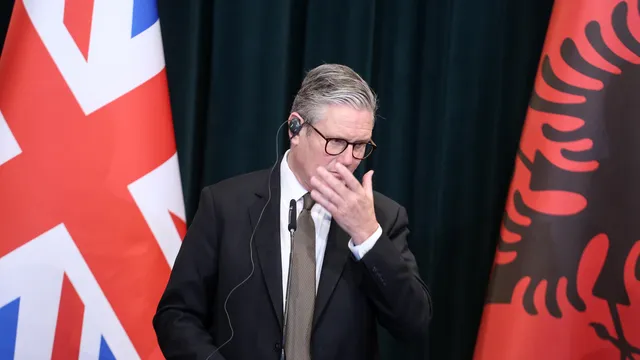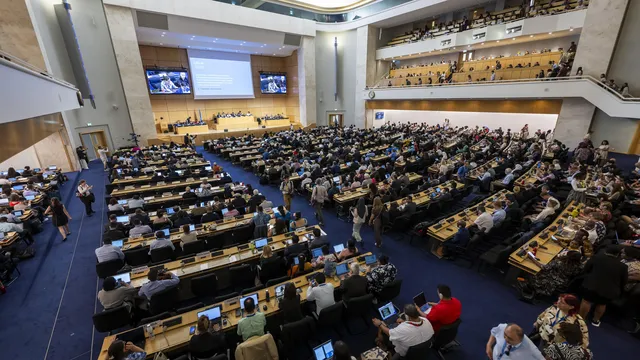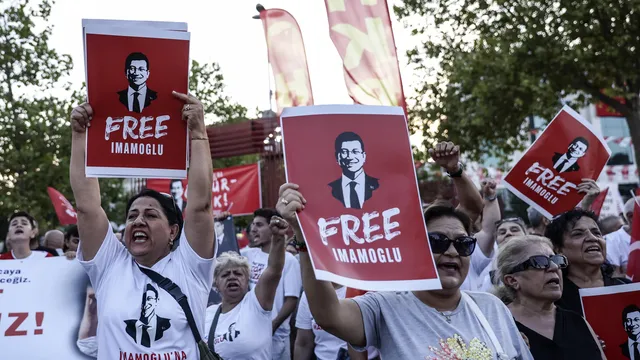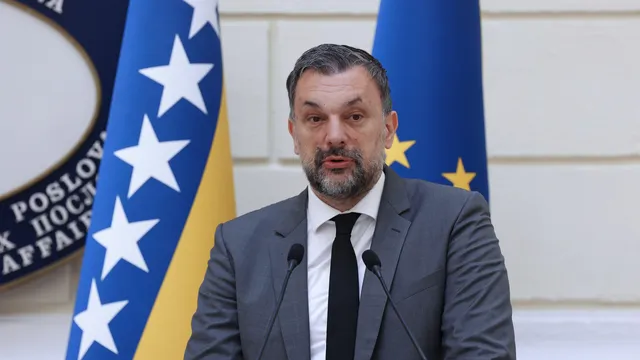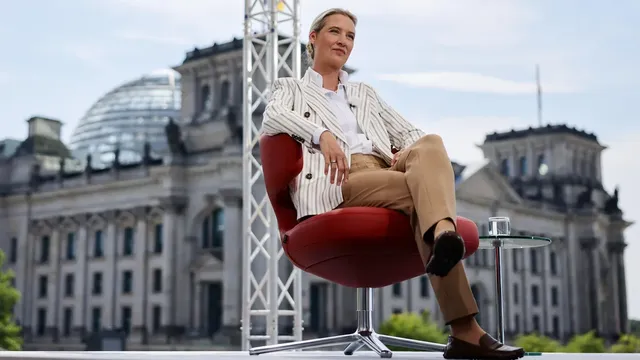British intelligence sources claim that Prime Minister Keir Starmer is in talks with Serbia, Kosovo, North Macedonia and Bosnia and Herzegovina to set up migrant deportation centres in those countries. The British security services stress that this is a dangerous move, as Russia's influence in the region, especially in Serbia, is great.
British Prime Minister Keir Starmer is pressing ahead with plans to deport migrants to so-called "return centres" in the Western Balkans, despite secret services warning him that Russian spies could take advantage.
According to government sources who spoke to the Times , the intelligence agency's security guidelines state that the region is not safe for migrant deportation schemes because of its proximity to Russia.
Starmer's plans would mean placing sensitive national infrastructure and facilities in the "Russian sphere of influence" , which could be infiltrated and targeted by agents acting in the Kremlin's interests.
It also warns that migrants sent to the region could be targeted and used by the regime of Russian President Vladimir Putin.
This month, the British prime minister confirmed reports that the government was in talks with "a number of countries" about setting up return centres, which he described as a "really important innovation".
Serbia, Kosovo, North Macedonia and Bosnia and Herzegovina are on a shortlist of around nine countries that ministers and officials are considering as possible destinations for rejected asylum seekers once they have exhausted all avenues of appeal in the UK.
Albania was also on the list, but its Prime Minister Edi Rama rejected it this month.
The plan for extraterritorial migrant centres in the Balkans was already blocked due to concerns from MI6 (British intelligence) when the previous Conservative government drew up a list of countries for a Rwanda-style deportation scheme in 2022.
According to a government official who worked on the proposals, the list included Albania and Moldova.
Separate security sources say the same concerns have been raised about Starmer's efforts to open return centres in the region.
A government source familiar with security warnings regarding the Balkan region said:
"The advice we received was that we would send people straight into the Russian sphere of interest. They listed key British national infrastructures, facilities and systems that would be set up and which the Russians could penetrate by placing agents and others working in the interests of the Kremlin. Essentially, you would be placing an important piece of British interest, British soil, right in an area where Russia has far more ability to control and influence than anywhere else in the world. The security assessment was that this was neither sensible nor feasible."
"It was based on the evidence we have that Russia is prepared to use migration as a means of exploitation. Establishing a large migrant processing centre in close proximity to a hostile state was not considered reasonable from a security perspective."
According to a security source, MI6 is concerned about plans that affect all countries in the Western Balkans, pointing out that they are all former communist Yugoslav states.
"The concern exists in various forms. Serbia is the worst, some countries pose a greater threat than others. This is the former Yugoslavia - the Russian links are quite clear ," the source said.
"There are hundreds of ways Russia can influence these governments - digitally, physically, through corruption, by putting pro-Russian figures in governments or by unwittingly influencing people to adopt the Russian way of thinking," he added.
"Russia also uses organised gangs and the question is whether these countries have the capacity in the rule of law area to deal with such threats," the source added.
The sources also pointed out that Serbia's President Aleksandar Vucic is a close ally of Putin and visited him in early May on Victory Day in Red Square.
Another reason cited by security officials is the rules that allow Russian citizens and Russian passport holders to move freely in and out of Serbia, as well as reports that Russian weapons are moving freely through the country.
This week, Britain began informal talks about return centres with several countries, including Kosovo.
Kosovo's president, Vjosa Osmani, said her country would be "open" to talks on a potential deal to take in rejected asylum seekers from the UK.
But experts warn of legal obstacles, given that several European countries do not recognise Kosovo's independence and that it has not signed the European Convention on Human Rights (ECHR).
It is understood that Starmer's cabinet has set itself the target of announcing the destinations for the return centres by the autumn, when the UK will host a meeting of Western Balkan leaders in London , at which irregular migration will be a major issue.
However, there is growing frustration at the lack of progress from the Home Office on what form return centres should take. | BGNES

 Breaking news
Breaking news
 Europe
Europe
 Bulgaria
Bulgaria
